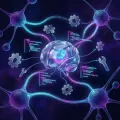
The 7 Habits of Highly Effective Developers: Lessons from the Classic Book
Introduction
As developers, we’re constantly striving to improve our craft—whether it’s writing cleaner code, mastering new frameworks, or delivering projects on time. But beyond technical skills, there are fundamental habits that can elevate our effectiveness and satisfaction in our careers. In this post, I’ll share how the timeless principles from Stephen Covey’s “The 7 Habits of Highly Effective People” can be applied to the world of software development. As a Senior Full Stack Engineer, I’ve seen firsthand how these habits can transform the way we work, collaborate, and grow. Whether you’re a junior developer just starting out or a seasoned pro, these habits can help you become more productive, collaborative, and fulfilled in your coding journey.
Habit 1: Be Proactive
Being proactive is about taking responsibility for your actions and decisions rather than reacting to external circumstances. For developers, this means stepping up and owning your work.
- Actively seek out areas for improvement in the codebase or development process.
- Volunteer for challenging tasks or projects that push your skills.
- Stay ahead of potential issues by writing tests or documenting code.
- Continuously learn and adapt to new technologies.
Example: Imagine you’re working on a web application and notice the authentication system is outdated and vulnerable. Instead of waiting for a security breach or for someone else to flag it, you research modern authentication methods (like OAuth or JWT), propose an upgrade to your team, and lead the implementation. That’s proactive development in action.
Habit 2: Begin with the End in Mind
This habit is about defining clear goals and visions before diving into any task. In software development, it’s about understanding why you’re building something before you start coding.
- Understand the business objectives and user needs before writing a single line of code.
- Create detailed specifications, user stories, or wireframes to guide your work.
- Design your software architecture with scalability and maintainability in mind.
Example: Before coding a new feature, take a step back to clarify what problem it solves for the user and how it aligns with the product’s strategy. As a full stack engineer, I often sketch out a rough API design or UI prototype to visualize the end result—ensuring my code serves the bigger picture.
Habit 3: Put First Things First
With competing demands like bugs, features, and technical debt, prioritization is a developer’s superpower.
- Identify high-impact tasks and focus on them first.
- Use tools like the Eisenhower Matrix to categorize tasks by urgency and importance.
- Avoid multitasking—focus on one task at a time for better results.
Example: Picture a sprint where you’ve got a critical bug, a new feature, and some legacy code to refactor. By prioritizing the bug fix that’s blocking users (the “first thing”), you deliver immediate value while keeping the project on track. Tools like Kanban boards or Jira can help visualize what matters most.
Habit 4: Think Win-Win
Collaboration is at the heart of development, and thinking win-win means finding solutions that benefit everyone—team members, stakeholders, and users alike.
- Work with designers, product managers, and other devs to balance needs and constraints.
- Negotiate deadlines or feature scopes to ensure quality without burning out.
Example: When a product manager pushes for a feature that requires heavy refactoring, a win-win approach might mean breaking it into smaller, incremental releases. This keeps the product moving forward while maintaining a clean, manageable codebase—satisfying both sides.
Habit 5: Seek First to Understand, Then to Be Understood
Effective communication can make or break a project, especially in a field as technical as ours.
- Listen actively to your teammates’ ideas and concerns.
- Ask clarifying questions before jumping to solutions.
- Explain complex technical concepts clearly—whether to peers or non-technical stakeholders.
Example: In a code review, resist the urge to immediately critique. Instead, ask why a teammate chose a particular approach (maybe they optimized for performance over readability). Once you understand their perspective, offer constructive feedback that improves the code and their skills.
Habit 6: Synergize
Synergy is the magic that happens when a team’s collective effort exceeds the sum of its parts.
- Leverage the diverse skills and perspectives of your team.
- Encourage open collaboration—whether through brainstorming or code reviews.
- Recognize that teamwork often leads to better solutions than solo work.
Example: During a recent project, my team hit a wall with a tricky API integration. By pairing a front-end dev with a back-end expert (me), we brainstormed a solution that combined React hooks with a streamlined endpoint—something neither of us could’ve cracked alone. That’s synergy in action.
Habit 7: Sharpen the Saw
In an industry that evolves daily, staying sharp is non-negotiable.
- Regularly update your skills through courses, books, or conferences.
- Experiment with side projects or contribute to open-source to stay hands-on.
- Take time to rest and reflect—burnout kills creativity.
Example: I set aside time each month to dive into something new—lately, it’s been learning Rust for systems programming. Pair that with contributing to open-source repos on GitHub, and I keep my skills fresh while giving back to the community. Balance it with a weekend offline, and I’m recharged for the next challenge.
Conclusion
By weaving these seven habits into your daily routine, you can level up as a developer—not just in code quality, but in how you approach your work, your team, and your career. As a Senior Full Stack Engineer, I’ve found these principles invaluable for staying productive and building solutions that matter. From proactively improving systems to synergizing with my team, these habits are a roadmap to success in software development.
What about you? Have you applied any of these habits in your coding life? Drop your thoughts in the comments below—I’d love to hear your stories. And if you found this helpful, subscribe for more insights on thriving as a developer!
Related Articles

Atomic Habits for Software Developers and Managers: Small Changes, Big Impact
Ever felt like you're stuck in a rut with your coding practices or project management style? You know there’s room for improvement, but the idea of overhauling your entire workflow feels overwhelming.

Mastering AI Coding Assistants: Skills, Context, and MCP Servers Explained
Unlock the full potential of AI coding assistants by understanding Skills, Context, and MCP Servers. Learn how these features transform your development workflow with practical examples and best practices.

Fueling Your Fire: The Endless Benefits of Learning in Pursuit of Passion
In a world that never stops evolving, the pursuit of knowledge remains a beacon for those driven by passion and curiosity.